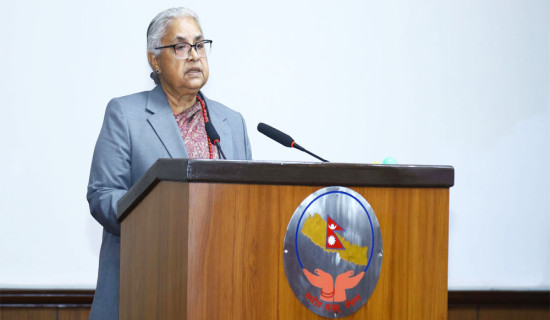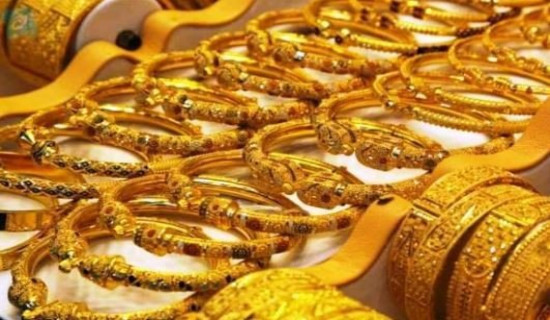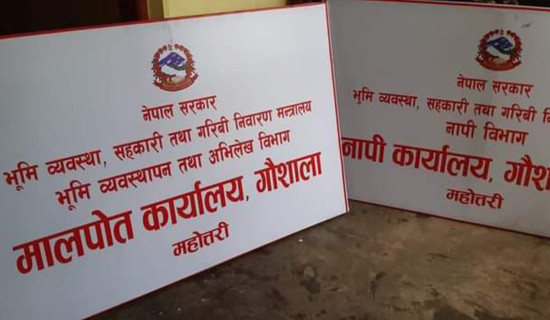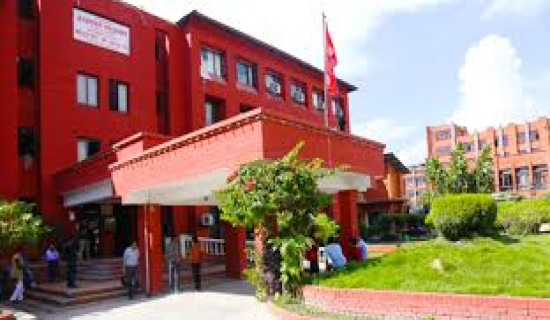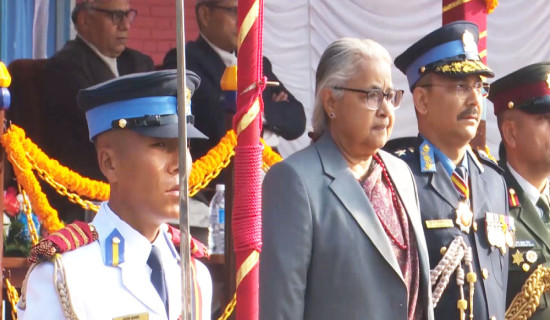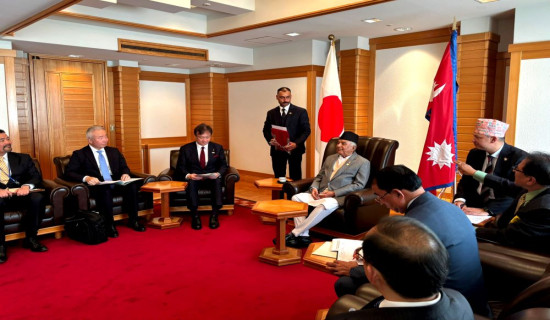- Monday, 2 February 2026
Capital expenditure a meager 14% in six months
By Laxman Kafle
Kathmandu, Jan 17 : The chronic problem of slow pace of capital expenditure of the government has persisted in the current fiscal year as well.
The capital expenditure stands at only 14.05 per cent by the end of six months of the current fiscal year (by January 14, 2023), according to the daily budgetary report of the Financial Comptroller General Office under the Ministry of Finance.
Of the Rs. 380.38 billion allocated under capital expenditure, only Rs. 53.45 billion was spent in six months of the current fiscal year, starting from July 17, 2022 to January 14, 2023.
During the review period, the rate of expenditure was slightly higher compared to the same period last fiscal year 2021/22, while it is almost equal compared to the previous financial year 2020/21.
The capital expenditure stood at 13.44 per cent (Rs. 50.80 billion) of the total allocation of Rs. 378.09 billion in the first six months of the last fiscal year 2021/22 and 14.04 per cent (Rs. 50.8 billion) of Rs. 352.81 billion in same period of fiscal year 2020/21.
Economists criticised the poor expenditure of the capital budget owing to failure in expediting the works by making a calendar.
The rate of capital expenditure is low even after completing half of the current fiscal year which has indicated that the government failed to expedite the development works even when the budget was introduced in time, they said.
The sluggish pace of work in the national pride projects as well as other projects has resulted in the poor capital expenditure, said economist Dr. Chandra Mani Adhikari.
"Weak project preparation, lack of effective project monitoring and hurdles seen during the project implementation are major reasons for the low capital expenditure this year too," he said.
The government introduces a fiscal budget at the end of May (Jestha 15) every year as per the constitutional provision. The provision was incorporated in the Constitution to implement the budget effectively and improve the capacity to spend the capital budget, which has now become an irony regarding budget expenditure.
The government has managed the provision to give authority for project implementation from the very first day of Shrawan, but it has not become effective, he said.
It showed that a systemic reform in the budget preparation and its implementation was a must to address the malady of poor capital expenditure, he said.
For the last one and a half decades, only 13-15 per cent of the capital budget is spent in the first six months of the fiscal year and only around 70 per cent is spent annually.
According to Adhikari, sluggish rate of capital expenditure was due to lack of implementation of the system to award the development projects to the contractors as per their capacity.
The capital expenditure should be at least 25 per cent in the first six months of the current fiscal year, but it is around 14 per cent, he said.
"Low rate of capital expenditure is a challenge for the country and the government too. Poor capital expenditure of the government will discourage the private sector to increase their investment, limiting job creation and hurting overall economy as well,” he said.
"The expenditure policy of the government for all projects is the same which hinders accelerating the development works. So, the government should adopt special expenditure policy for special projects to be constructed in time,” he said.
The tendency to allocate low budget for development works has stuck and it too is not spent , he said, and added that it will be difficult to accelerate economic activities and achieve targeted economic growth in this state .
The government should adopt the reward and punishment system to make government officials and project chiefs responsible for their jobs, he said.
In a meeting with the Prime Minister, Deputy Prime Minister and Finance Minister of the newly formed government, the private sector has requested to accelerate the development works and increase the capital expenditure.
Revenue records surplus
Revenue collection, which was in deficit for five months of the current financial year, improved and came to surplus in six months.
According to FCGO, the government has collected revenue of Rs. 459 billion during the first six months of the current fiscal year.
According to the data, while the revenue collection is 32.71 per cent (Rs. 459 billion) of the annual target, the recurrent expenditure (administrative expenditure) has reached 38.46 per cent.
The country faced a revenue deficit for the first time this fiscal year. Revenue deficit reached Rs. 28 billion a month ago. Now, the country is able to post a revenue surplus of Rs. 4 billion in the six months.
The revenue collection of the government stood at Rs. 459 billion while recurrent expenditure stood at Rs. 455 billion by January 14, 2023.
Adhikari said that when the government imposed a ban on the import of various goods because of the decrease in foreign exchange reserves, it had a big impact on the economy, especially in revenue collection.
He said that when the government raised tax in advance from big corporate houses, the revenue which was in a state of big deficit until the previous month may have come to a surplus in the last month.
“It is difficult to maintain growth of revenue mobilisation in the coming months. It is necessary to diversify the sources of revenue which depends on imports,” he said.



